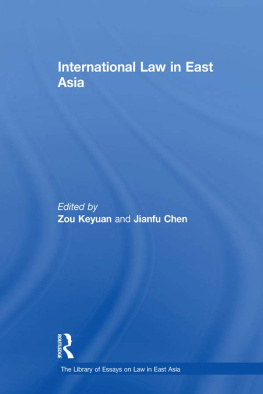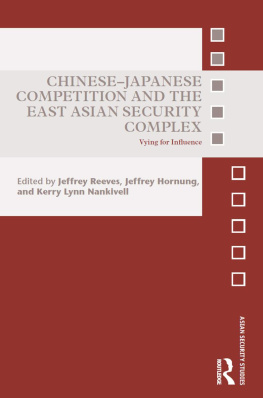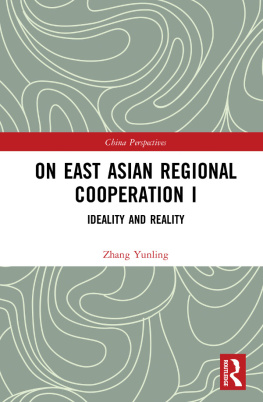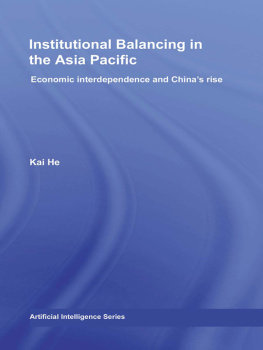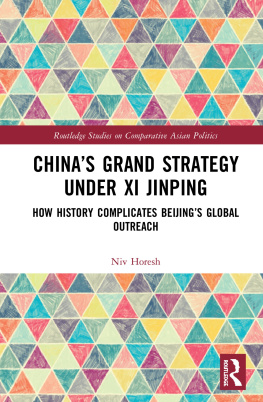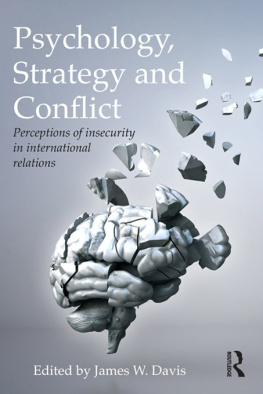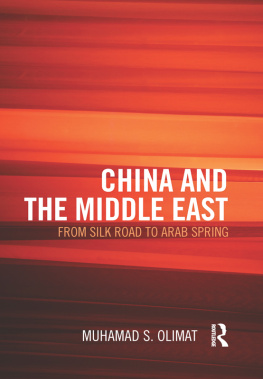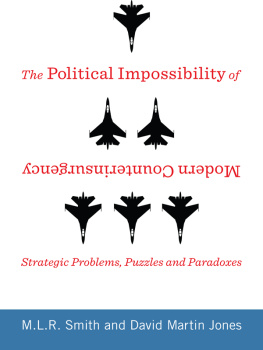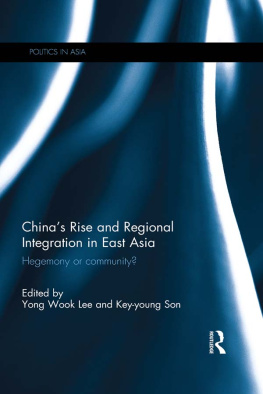Chinese Hegemony
GRAND STRATEGY AND INTERNATIONAL INSTITUTIONS IN EAST ASIAN HISTORY
Feng Zhang
Stanford University Press
Stanford, California
Stanford University Press
Stanford, California
2015 by the Board of Trustees of the Leland Stanford Junior University. All rights reserved.
No part of this book may be reproduced or transmitted in any form or by any means, electronic or mechanical, including photocopying and recording, or in any information storage or retrieval system without the prior written permission of Stanford University Press.
Printed in the United States of America on acid-free, archival-quality paper
Library of Congress Cataloging-in-Publication Data
Zhang, Feng, 1980 author.
Chinese hegemony : grand strategy and international institutions in East Asian history / Feng Zhang.
pages cm
Includes bibliographical references and index.
ISBN 978-0-8047-9389-6 (cloth : alk. paper)
1. ChinaForeign relationsEast Asia. 2. East AsiaForeign relationsChina. 3. ChinaHistoryMing dynasty, 13681644. 4. HegemonyChinaHistory. 5. HegemonyEast AsiaHistory. I. Title.
DS740.61.Z53 2015
327.5105dc23
2014041549
ISBN 978-0-8047-9504-3 (electronic)
Typeset by Newgen in 11/14 Garamond
To my wife Shu Man, for all your love and sacrifice, and to our daughter,
Zhang Han, for the faith we have in you
Contents
Illustrations
FIGURES
TABLES
MAP
Notes on Transliterations
Chinese names and terms are transliterated with standard Pinyin romanization except when they are taken from a Western-language source that uses the Wade-Giles system or the Cantonese system. Japanese names and terms are transliterated with the Hepburn system, and Korean with the McCune-Reischauer system. Chinese, Japanese, and Korean names are written with the family name preceding the given name, except when they are taken from a Western-language source that provides the authors given name before the family name.
Conversion of Chinese dates into their Western equivalents is based on the excellent online converting system developed by Academia Sinica (http://sinocal.sinica.edu.tw).
Citation of multichapter (juan) Chinese sources such as the Ming shi lu and Ming shi that are available in modern editions generally follows the customary practice among historians of placing a period between the juan number and the page range. The page range referred to is that of the pagination of the modern edition (e.g., MSL, Taizong shi lu, 247.231314; MS, 328.8497).
Unless otherwise stated, all translations of Chinese terms and sources are my own.
Acknowledgments
This book could not have been completed without the help and support of many individuals and institutions. My greatest intellectual debt is to my teachers and friends in the International Relations Department of the London School of Economics and Political Science (LSE). Chris R. Hughes helped me to sharpen my thinking on important questions that the project needed to tackle. Barry Buzan and Karen Smith helped me plan this book in its early stages. Barry, moreover, read the next-to-last draft with great care and provided many insightful comments and criticisms. I was also fortunate to have colleagues to aid me along the process, including Toh Ee Loong, Ramon Pacheco Pardo, Jeffrey Reeves, and many others. I am also grateful to LSEs Government Department, particularly Lin Chun and Dominic Lieven. The Vincent Cheng scholarship of the LSE provided crucial financial support for the project. The International Relations departments of Tsinghua University, Murdoch University, and the Australian National University have also provided helpful institutional environments for revising and completing this book in different ways.
During the long gestation of the book, I have received encouragement, support, comments, and much-needed criticisms from many scholars. They include Daniel Bell, Timothy Brook, William Callahan, Chen Jian, Ja Ian Chong, Michael Cox, Pamela Crossley, Nicola Di Cosmo, Tim Dunne, Mark Elliott, Paul Evans, Rosemary Foot, Ian Hall, Victoria Tin-bor Hui, David Kang, Peter Katzenstein, Richard Ned Lebow, Jason Sharman, Jack Snyder, Song Chengyou, Masayuki Tadokoro, William Tow, Tsai Mon-Han, Geoff Wade, Wang Gungwu, Yuan-kang Wang, Arne Westad, John E. Wills Jr., William Wohlforth, Brantly Womack, Yan Xuetong, Yu Wanli, Yuen Foong Khong, Zhang Qian, Zhang Yongjin, Zhao Tingyang, and Zheng Yongnian.
I am especially grateful to Victoria Hui for her invaluable advice almost from the start of this project. Wang Gungwus interest in my work has been a particular encouragement to me. Barry Buzan, David Kang, Peter Katzenstein, Richard Ned Lebow, William Tow, Tsai Mon-Han, and Yuan-kang Wang have all read part or whole of the manuscript and provided insightful comments and suggestions. Dave Kang and Ned Lebow read multiple drafts and provided extensive feedback. Ned Lebow, moreover, has been extremely helpful in the final submission stage. I am also grateful to Geoffrey Burn at Stanford University Press for taking this project on board, to James Holt, Anne Fuzellier, and Jay Harward for editorial and production assistance, and to Katherine Faydash for expert copyediting. I also thank my colleague Mary-Louise Hickey in the International Relations Department of the Australian National University for her very careful proofreading.
I owe my family the deepest debt for their unwavering support over many years. My wife, Shu Man, with her love and dedication, is the most important person behind the initiation and completion of this book. Our recently arrived daughter, Zhang Han, has given us joy and faith. Finally, I am grateful to my parents, Zhang Zhihao and Fan Lianyun, for understanding and supporting me over such a long and sometimes difficult period.
Abbreviations
| DMB | Dictionary of Ming Biography, Carrington Goodrich and Fang |
| FADYJ | Fu an dong yi ji, Ma Wensheng |
| GLS | Gaoli shi zhong zhong han guanxi shiliao huibian, Jin Weixian |
| LCSL | Chaoxian lichao shilu zhong de zhongguo shiliao, Wu Han |
| MGHJSL I | Mingdai menggu hanji shiliao huibian, di yi ji, Bo and Wang, vol. 1 |
| MGHJSL II | Mingdai menggu hanji shiliao huibian, di er ji, Bo and Wang, vol. 2 |
| MS | Ming shi, Zhang Tingyu |
| MSL | Ming shi lu, Zhongyang yanjiuyuan lishi yuyan yanjiusuo |
| SYZZL | Shu yu zhou zi lu, Yan Congjian |
ONE
Introduction
Chinas rise is one of the most significant developments in contemporary international relations. As the result of more than three decades of phenomenal economic growth, since the initiation of economic reform in 1978, a strong China now stands before the world for the first time in over a century. As China may rival the United States in material capabilities,
Indeed, such an analytical shift is apparent in an emerging academic and policy discourse, inside and outside China, on possible Chinese hegemony in East Asia. Inside China, an important group of scholars, albeit still a minority in the Chinese intellectual community, has begun to promote Chinas world leadership on the basis of a distinctive type of Chinese hegemony, humane authority. These discussions are taking place despite the Chinese governments persistent renunciation of any hegemonic ambition throughout the reform era (1978 to the present).
But how can we think about a future Chinese hegemony if it is possible? Pure theoretical deductions will not offer great help, because most theories in the social sciences, including international relations (IR) theories, are poor at useful predictions of any sort.
Next page

